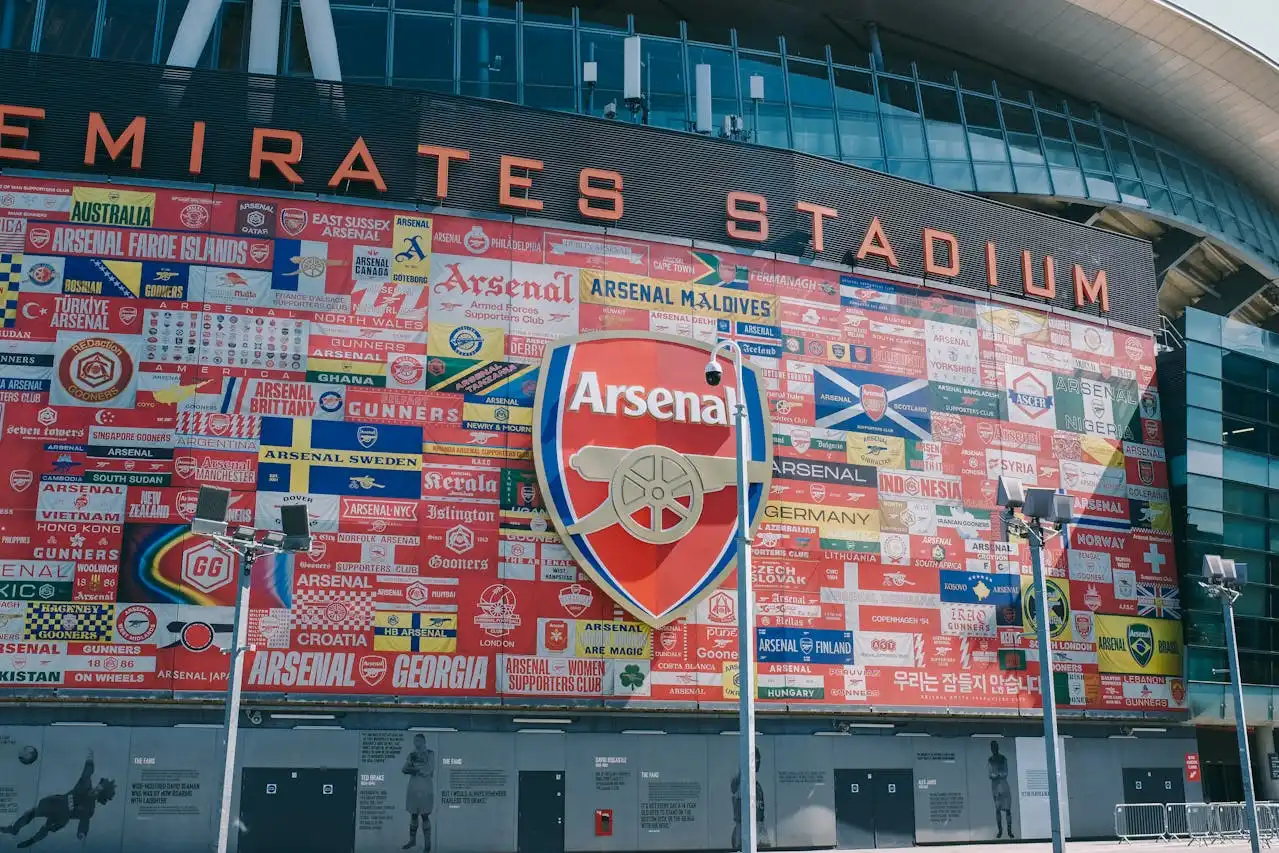More Than Just a Club: Why Arsenal Is a Symbol of History and a Distinctive Style of Football
Muhe - Saturday, 19 July 2025 | 05:00 AM (WIB)


More Than Just a Game
You know that feeling when you talk about your favourite football team? For many, it's just a hobby, a weekend distraction. But for those of us who bleed red and white, Arsenal Football Club is something else entirely. It's not just 11 players kicking a ball around; it's a tapestry woven from over a century of triumphs, heartbreaks, innovation, and an unwavering commitment to playing the beautiful game with a certain flair. In an era where football clubs often feel like interchangeable corporate entities, Arsenal stands out as a symbol of rich history and a truly distinctive style of play that echoes through generations.
Humble Beginnings and Chapman’s Vision
Cast your mind back to the late 19th century. Arsenal began its life as Dial Square, founded by workers at the Royal Arsenal armament factory in Woolwich. Talk about humble beginnings! From those working-class roots, the club steadily grew, eventually moving north to Highbury in 1913.
But it wasn't until the arrival of Herbert Chapman in 1925 that Arsenal truly began to sculpt its identity. Chapman wasn't just a manager; he was a visionary. He transformed the club, from the simple act of adding white sleeves to the iconic red shirts – a design that still looks sharp today – to revolutionizing tactics with his famous W-M formation.
This period wasn't just about winning trophies; it was about laying the foundation for a club that valued innovation, discipline, and a forward-thinking approach. They weren't just winning; they were winning with purpose.
Wenger’s Revolution: Style Meets Substance
Fast forward several decades, past successful periods under managers like George Graham, who famously honed a "1-0 to the Arsenal" defensive mastery. Then came 1996, and with it, a relatively unknown Frenchman named Arsène Wenger.
If Chapman was a visionary, Wenger was a revolutionary. He arrived in England and completely flipped the script, introducing new training methods, diets, and, most importantly, a philosophy of football that prioritized fluid, attacking, aesthetically pleasing play. Wenger’s Arsenal was all about quick passes, intelligent movement, and a relentless pursuit of perfection.
The Invincibles: Football as Art
The peak of this distinctive style was the "Invincibles" season of 2003-04, when Arsenal went an entire Premier League campaign unbeaten. Think about that for a second! In a league as competitive as the Premier League, that feat is simply mind-boggling.
Thierry Henry, Dennis Bergkamp, Patrick Vieira, Robert Pires – names that still send shivers down the spine of any fan. They didn’t just win; they did it with panache, with an almost balletic grace that captivated audiences worldwide. This was football at its most elegant and expressive – The Arsenal Way in full glory.
A Club with a Heart: Community and Culture
Beyond the trophies and the beautiful goals, Arsenal’s status as more than just a club is deeply embedded in its community and global family of supporters. From the tight-knit streets around Highbury – and now the Emirates – to fans across every continent, the sense of belonging is palpable.
It’s about shared experiences, pre-match rituals, generations of fans in matching scarves. Arsenal represents tradition, loyalty, and a set of values that often prioritize integrity over quick success – a source of pride, even in tougher times.
Post-Invincibles Era: Challenges and Resilience
Sure, the years following the Invincibles era brought their own set of challenges. Competing against state-backed clubs with limitless budgets while building a new stadium meant a shift in approach. There were near misses, debates, and frustration – remember the “Wenger Out” years?
Yet, through it all, Arsenal’s identity endured. The belief in youth, attractive football, and sustainability never fully disappeared. And under Mikel Arteta, the club is reconnecting with that DNA – developing a young, exciting team with ambition and class.
Arsenal Today: A Club Like No Other
In a world where football often feels like a business first, Arsenal remains a symbol of something deeper. It’s about legacy, artistry, and being part of something greater than yourself. When the team flows, when the crowd rises, when a youth academy player becomes a star – that’s the magic.
It’s a club that stirs passion across generations and continents, a living story still being written. And for those who believe in football played with soul, intelligence, and grace – there’s simply nothing quite like Arsenal.

Liverpool vs Arsenal Prediction: Week 3 of the 2025/2026 Premier League
14 days ago

Rayo Vallecano vs. Barcelona Prediction: Week 3 of La Liga 2025/2026
14 days ago

Messi's Last Dance? The GOAT Hints at a Potential World Cup Farewell in 2026
15 days ago

Real Madrid vs Mallorca Prediction: Los Blancos Aim for Third Consecutive Win
15 days ago

West London Derby: Chelsea vs. Fulham Prediction, Week 3 Premier League Match
16 days ago

Manchester United vs Burnley Prediction: Tough Test at Old Trafford
16 days ago

The Roar of History: Why Almaty Ortalık Stadium Isn't Just a Venue, It's Kazakhstan's Heartbeat
16 days ago

Wayne Rooney’s Stark Warning: Can Manchester United Still Attract Elite Managers?
16 days ago

The End of the Road: Ole Gunnar Solskjaer's Turkish Adventure Concludes Abruptly at Besiktas
16 days ago

Argentina vs. Venezuela: Lionel Messi's Final Moments in Home?
16 days ago
